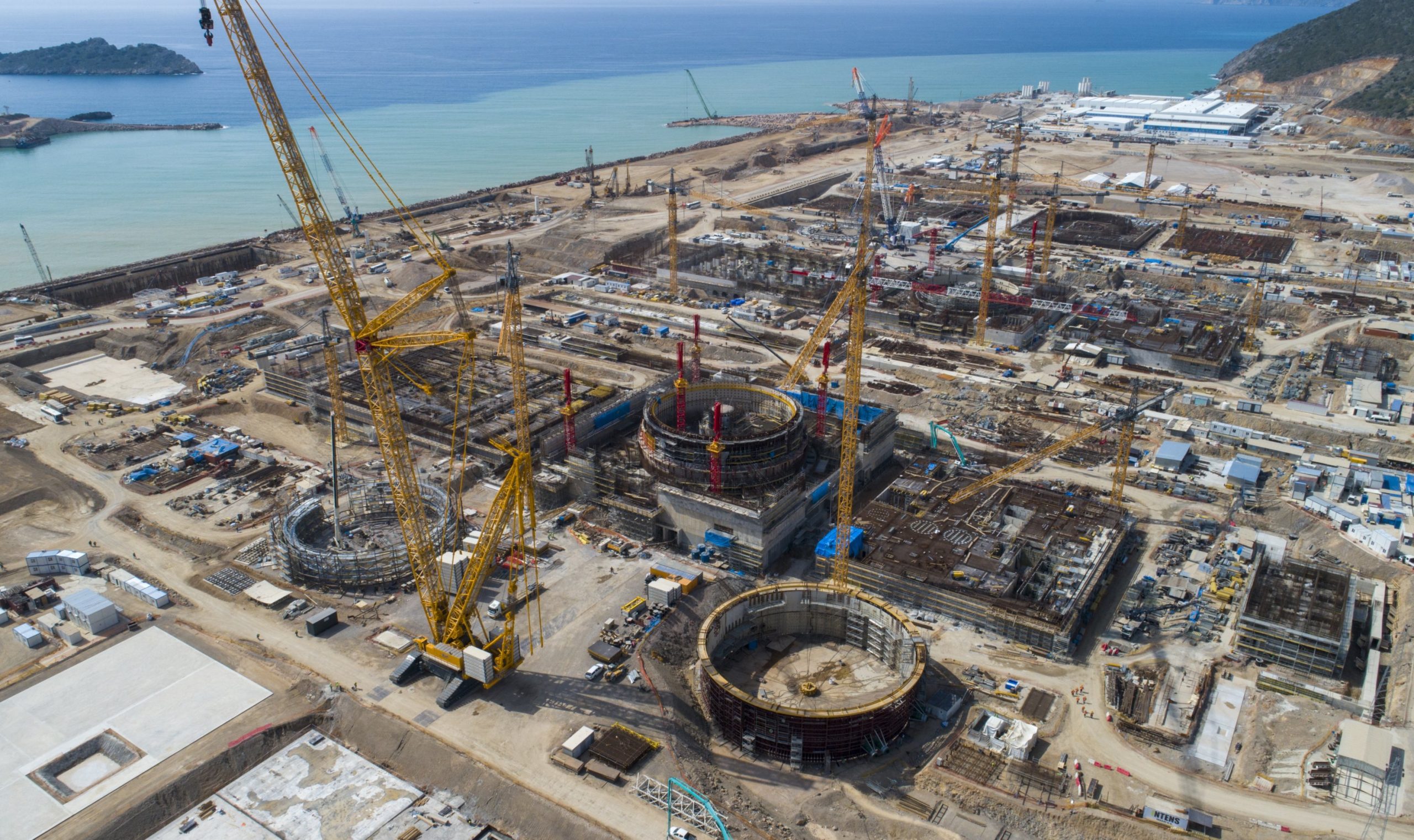A Russian state-owned company is transferring money to a subsidiary that’s building a $20 billion nuclear power plant on Turkey’s Mediterranean coast, alleviating concerns the project could be delayed by war sanctions.
Rosatom Corp. last week sent around $5 billion to the Turkey-based builder, formally known as Akkuyu Nuclear JSC, with two other similar dollar transfers planned for this week and next, according to senior Turkish officials with direct knowledge of the matter.
Rosatom said in a statement although the construction site is the largest of its kind worldwide, “current transactions are significantly lower” than the figure provided by the Turkish officials.
Financing arrangements for the project are private, according to Rosatom, which declined to provide further details.
The power plant is considered critical for Turkey if it’s to satisfy ever-growing energy needs, slated to meet 10% of the country’s domestic electricity demand once all four reactors become operational. Russia and Turkey have economic ties going back decades, and Turkish President Recep Tayyip Erdogan has been careful not to alienate the Kremlin since Russian troops invaded Ukraine.
The project has received finance from Russia’s biggest lender, Sberbank PJSC, which has been sanctioned by the US and European Union, and also from Sovcombank, also sanctioned.
Rosatom, the sole owner of the Turkish project, and its subsidiary that’s building plant haven’t been sanctioned.
An Akkuyu Nuclear JSC representative didn’t comment. Turkey’s Ministry of Treasury and Finance declined to comment.
The financing will cover all procurement needs for the Akkuyu project over the next two years, the Turkish officials said, asking not to be identified due to the sensitivity of the issue.
Work on the first reactor, known as Akkuyu 1, began in 2018, with engineers starting on Akkuyu 2 two years later. Work is scheduled to be completed by 2026.
One of the officials described the transfers as a goodwill gesture by Russia’s Vladimir Putin for Erdogan’s role in a landmark deal that’s expected to unlock grain exports out of Ukraine and eased concerns of a global food crisis. The two leaders are due to hold talks in Sochi on Aug. 5.
In March, Rosatom said it has the right to sell as much as 49% in Akkuyu to an investor, yet has all “the necessary resources and tools for the successful delivery of the project” even if it finances construction on its own. “The production and delivery of equipment” for the plant were on schedule, Rosatom said.
Deep Ties
As well as an oil refinery built by the former Soviet Union near the town of Aliaga in the 1970s, Russian engineers developed other pillars of Turkey’s industrial heartland, including an aluminum plant, textile and glass-making facilities.
Turkey has also bought missile defenses from Moscow after having failed to secure a deal with traditional NATO allies including the US. Ankara cited advantages of the Russian system such as price and the transfer of technology.
Russia remains a critical source of energy supplies for Turkey. It provided a quarter of Turkey’s crude oil imports and around 45% of its natural-gas purchases last year, giving Moscow a huge surplus in bilateral trade.
The two countries are now working on a mechanism that would allow Turkey to pay for a part or all of its energy purchases from Russia in liras, the Turkish central bank said on Thursday.
Recognizing Ankara’s economic vulnerabilities, European allies and the U.S. have held off pressuring Erdogan to fall in line with their sanctions on Russian companies and officials.
While refraining from joining most Western sanctions, the North Atlantic Treaty Organization member Turkey has been vocal about its support for Ukraine. A company headed by Erdogan’s son-in-law provided dozens of armed drones to bolster the Ukrainian military.
